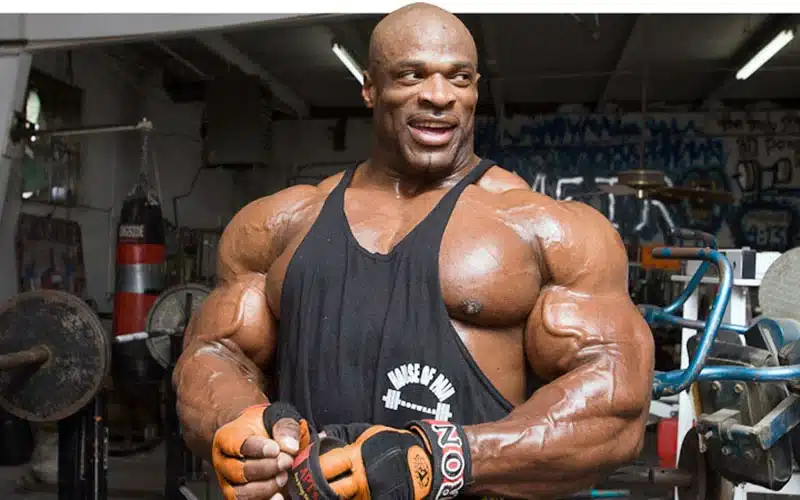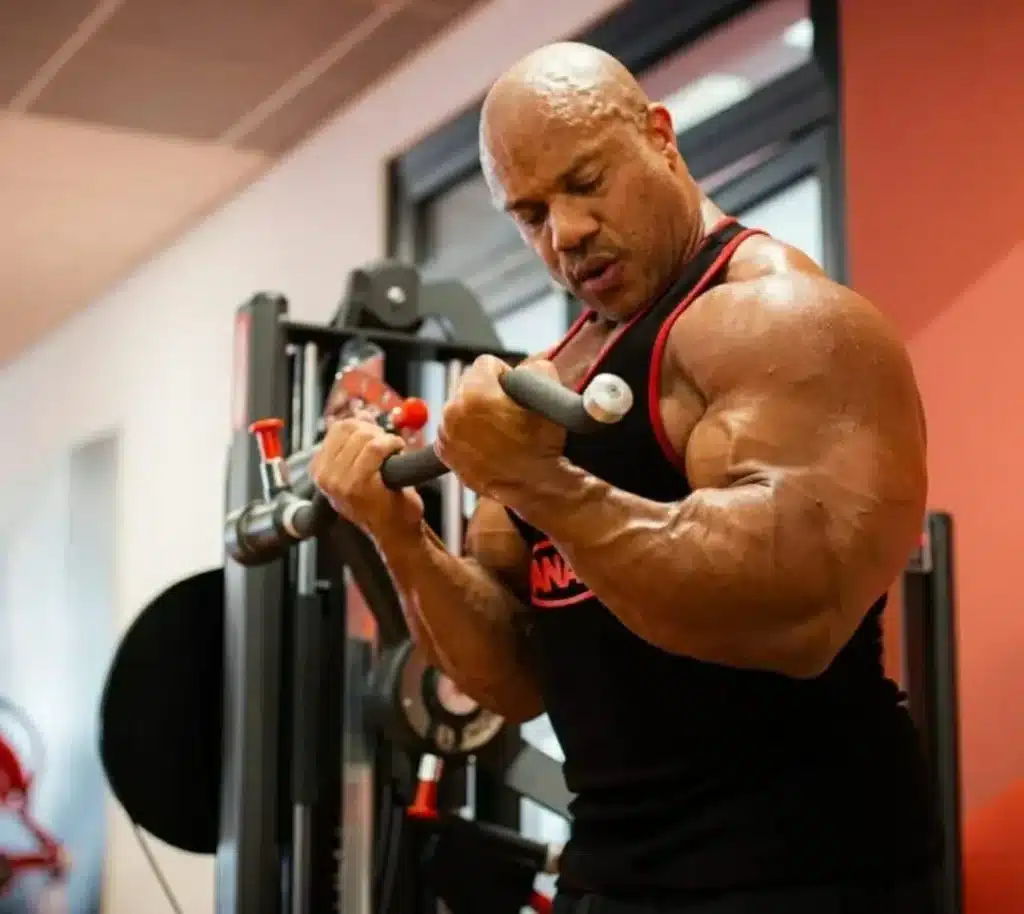Introduction
Do Bodybuilders Live Longer: The concept of bodybuilding has evolved significantly over the years. No longer confined to the confines of the gym, it encompasses a holistic approach to physical fitness, nutrition, and mental well-being. Beyond the sculpted physiques and competitive stages, bodybuilders adhere to a lifestyle that prioritizes discipline, dedication, and a relentless pursuit of optimal health. It is within this lifestyle that researchers and health enthusiasts have begun to uncover a potential link between bodybuilding and longevity.
At first glance, the association between intense weightlifting, rigorous training routines, and a longer life may seem paradoxical. The stereotypical image of bodybuilders often includes extreme dietary restrictions and the use of supplements, which can raise concerns about health risks. However, a closer examination reveals that modern bodybuilders, particularly those who adhere to evidence-based practices, prioritize overall health and longevity as essential components of their journey.
This sets the stage for an exploration into the multifaceted relationship between bodybuilding and longevity. By delving into the physical, psychological, and nutritional aspects of bodybuilding, we will uncover the science behind the potential health benefits it offers. We will also examine the various factors that influence whether bodybuilders do, in fact, live longer than the average person, and whether these benefits extend beyond the superficial realm of muscle.

Do muscle builders live longer?
An observational study of nearly 100,000 people over about ten years, published Sept. 27 in the British Journal of Sports Medicine, found that people who reported lifting weights once or twice a week—without doing any other exercise—had a 9% lower risk of dying from any cause except for cancer.
Metabolic Benefits: Muscles are metabolically active tissues, and maintaining a healthy amount of muscle mass can contribute to a higher resting metabolic rate. This can help prevent obesity and related conditions, such as type 2 diabetes and heart disease.
Improved Bone Health: Resistance training, a common practice among muscle builders, also promotes bone density and reduces the risk of osteoporosis and fractures, which can be life-threatening, especially in older adults.
Enhanced Insulin Sensitivity: Muscle mass aids in glucose uptake, leading to improved insulin sensitivity. This is crucial for preventing and managing diabetes, a condition linked to a shorter lifespan.
Reduced Risk of Falls: Strong muscles can improve balance and coordination, reducing the likelihood of falls and their associated injuries, which can be particularly dangerous for the elderly.
Stress Reduction: Exercise, including strength training, has been shown to reduce stress, anxiety, and depression, which can indirectly contribute to a longer, healthier life.
How long do bodybuilders usually live?
The mean age within the study cohort was 47.5 years (range 25.0-81.7) and mean age during competitive years was 24.6 years (range 18-47). Of the 597 bodybuilders with mortality data, 58 (9.7%) were reported dead and 539 living.
Lifestyle Choices:Bodybuilders often adopt lifestyles that prioritize nutrition, exercise, and avoiding harmful habits like smoking and excessive alcohol consumption. These choices can contribute positively to their overall health and potentially increase their lifespan.
Diet and Nutrition:Proper nutrition is a cornerstone of bodybuilding. Many bodybuilders follow strict diets rich in lean protein, complex carbohydrates, and essential nutrients. This can lead to better overall health and a lower risk of diet-related diseases.
Physical Fitness:Bodybuilders engage in intense resistance training and cardiovascular exercise routines to build muscle and maintain a high level of fitness. Regular physical activity is known to reduce the risk of chronic diseases and improve overall longevity.
Stress Management:While the pursuit of bodybuilding excellence can be physically demanding, many bodybuilders emphasize stress management techniques such as meditation and relaxation exercises to counterbalance the physical stress placed on their bodies.
Health Monitoring:Bodybuilders often undergo regular health check-ups and monitor their hormonal levels, blood pressure, and other health markers. Early detection and management of health issues can contribute to a longer life.
Do bodybuilders have problems later in life?
Aging and Bodybuilding
As a matter of fact most aging bodybuilders have joint problems. Even those who never competed, but kept a life long interest in their health and well-being through diet, exercise and lifting weights are prone to joint problems as they age.
Joint and Muscle Health:Bodybuilding involves lifting heavy weights and performing repetitive, high-intensity exercises. Over time, this can put significant strain on joints and muscles, potentially leading to conditions like osteoarthritis and overuse injuries. Many seasoned bodybuilders report joint pain and decreased flexibility as they age.
Cardiovascular Health:While resistance training offers numerous cardiovascular benefits, extreme bodybuilding regimens that involve significant weight gain and dietary changes may lead to heart-related issues. Excessive use of supplements and steroids can also negatively impact heart health.
Hormonal Imbalances:Some bodybuilders resort to anabolic steroids and other performance-enhancing substances to accelerate muscle growth. These substances can disrupt hormonal balance, leading to issues such as infertility, mood disorders, and cardiovascular problems later in life.
Kidney Function:High-protein diets are commonly associated with bodybuilding, and excessive protein consumption can strain the kidneys. Over time, this may contribute to kidney dysfunction, especially if individuals do not stay well-hydrated.
Do bodybuilders age faster?
Muscle mass tends to decrease as you age beyond your twenties. … However, taken to the extreme, bodybuilding can accelerate the aging process and may even lead to an early death. According a number of research studies, men who lift weights on a consistent basis look much years younger than their years.
Nutrition: Bodybuilders adhere to highly specialized diets to support muscle growth and fat loss. These diets are often rich in lean protein, complex carbohydrates, and essential nutrients. Proper nutrition can promote overall health and potentially mitigate some signs of aging.
Physical Fitness: Bodybuilders engage in regular, rigorous exercise routines that include resistance training and cardiovascular workouts. Regular physical activity is known to have numerous anti-aging benefits, including improved cardiovascular health, reduced risk of chronic diseases, and enhanced cognitive function.
Stress Management: While the intense pursuit of muscle development can be physically demanding, many bodybuilders emphasize stress management techniques such as meditation and relaxation exercises. Effective stress management can slow down the aging process by reducing the harmful effects of chronic stress.
Supplement Use: Some bodybuilders incorporate dietary supplements and vitamins into their routines to optimize muscle growth and recovery. These supplements, when used responsibly, can contribute to overall health and well-being.
Do strong people live longer?
Cardio plus strength training offers the most protection.
Mortality risk was 27 percent lower for those who did three hours a week. But those who also took part in one to two strength-training sessions per week had an even lower mortality risk — a full 40 percent lower than those who didn’t exercise at all.
Muscle Mass and Metabolism: Muscles are metabolically active tissues, meaning they burn calories even at rest. Individuals with greater muscle mass tend to have a higher resting metabolic rate, which can contribute to a lower risk of obesity and related conditions like diabetes and heart disease.
Bone Health: Strength training activities, such as weightlifting, resistance exercises, and high-impact activities, promote bone density. Stronger bones are less prone to fractures, especially as we age, reducing the risk of life-threatening injuries.
Balance and Fall Prevention: Strong muscles and a sturdy musculoskeletal system contribute to better balance and coordination. This can significantly reduce the risk of falls, a common cause of injuries and mortality, particularly among the elderly.
Stress Reduction: Engaging in strength-building exercises can help reduce stress and improve mental health. Chronic stress has been linked to various health issues that can shorten one’s lifespan.
At what age do you stop building muscle?
Typically, muscle mass and strength increase steadily from birth and reach their peak at around 30 to 35 years of age. After that, muscle power and performance decline slowly and linearly at first, and then faster after age 65 for women and 70 for men.
Childhood and Adolescence: Muscle development begins early in life, with noticeable growth occurring during puberty. This is when hormonal changes, including increased testosterone in males, drive significant muscle growth. During these years, proper nutrition and physical activity are essential for healthy muscle development.
Young Adulthood: In late adolescence and early adulthood, individuals can continue to build muscle effectively through resistance training and a well-balanced diet. Muscle development typically peaks in the late teens to mid-20s.
Adulthood: During adulthood, muscle development becomes more challenging as the body’s natural production of growth-promoting hormones like testosterone and growth hormone begins to decline. However, it’s still possible to build and maintain muscle with consistent resistance training and proper nutrition.
Middle Age: Muscle loss, known as sarcopenia, begins to become more pronounced around middle age (around 30-40 years old). This is due to a combination of factors, including hormonal changes, decreased physical activity, and reduced muscle protein synthesis. Resistance training becomes increasingly to combat age-related muscle loss.
Older Age: Muscle loss accelerates in older adults, particularly if they lead a sedentary lifestyle. Frailty and loss of mobility become significant concerns. While muscle development may be more challenging, it remains possible to build and maintain muscle even in later life with proper exercise and nutrition.
What are the risks of bodybuilding?
Some of the injuries you might acquire during training include elbow tendonitis, herniated disc, knee injury, and low back injury. Nonetheless, when it comes to competitive bodybuilding, cases of injuries are less compared to other forms of athletic discipline.
Injury Risk: Bodybuilders often engage in heavy weightlifting and high-intensity workouts. Without proper form, technique, or inadequate warm-up, they are susceptible to injuries such as muscle strains, ligament tears, and joint damage. These injuries can lead to long-term pain and physical limitations.
Overtraining: The relentless pursuit of muscle growth can lead to overtraining, where individuals push their bodies beyond their recovery capabilities. Overtraining can result in chronic fatigue, decreased performance, mood disturbances, and even immunosuppression, making the body vulnerable to illnesses.
Dietary Imbalances: Many bodybuilders follow strict dietary regimens that can sometimes be extreme, including high protein and calorie intake. Imbalanced diets can lead to nutritional deficiencies, digestive issues, and even metabolic disorders if not managed properly.
Steroid and Supplement Abuse: To accelerate muscle growth, some bodybuilders resort to the use of anabolic steroids and other performance-enhancing substances. The misuse of these substances can have severe health consequences, including cardiovascular problems, liver damage, hormonal imbalances, and psychological issues.
Body Dysmorphic Disorder (BDD): Bodybuilders may develop BDD, a mental health condition characterized by an obsessive focus on perceived flaws in appearance. This can lead to unhealthy behaviors, excessive cosmetic surgeries, and a negative impact on mental well-being.
Are bodybuilders strong in real life?
So – are bodybuilders strong? Absolutely. But if maximizing your physical strength as much as possible is your goal, it is properly a better choice to find a different training discipline, as bodybuilding’s focus on proportionality and muscle mass development can place strength development at the sideline.
Specificity of Training: Bodybuilding training is specific to muscle hypertrophy and aesthetic development. While this training does enhance overall strength, it may not translate directly to real-life activities that require a diverse range of movements and muscle groups.
Flexibility and Mobility: Some bodybuilders may prioritize muscle size over flexibility and mobility. Limited range of motion can hinder their ability to perform certain real-life tasks effectively.
Cardiovascular Fitness: Bodybuilders often focus less on cardiovascular fitness than on strength and aesthetics. As a result, they may struggle with activities that require endurance or sustained cardiovascular effort.
Nutrition and Recovery: Bodybuilders follow strict dietary regimens and prioritize recovery, but these aspects may not always align with the needs of functional strength in daily life.

Conclusion
One key takeaway from our examination is that the pursuit of a bodybuilding lifestyle, when approached sensibly and with a focus on evidence-based practices, can indeed be associated with a longer and healthier life. The incorporation of regular physical activity, resistance training, and balanced nutrition can contribute to reduced risk factors for numerous chronic diseases, including heart disease, diabetes, and obesity. Additionally, the mental fortitude, discipline, and stress management techniques cultivated by many bodybuilders can further enhance overall well-being.
While it is clear that bodybuilding can have a positive impact on health and longevity, it is essential to acknowledge that not all who engage in bodybuilding practices reap the same benefits. Factors such as genetics, individualized training approaches, and adherence to sustainable lifestyle choices play pivotal roles. Moreover, concerns surrounding extreme dietary restrictions, excessive supplementation, and the misuse of performance-enhancing substances must be addressed within the bodybuilding community to ensure that longevity goals are achieved without compromising health.
In our journey through the world of bodybuilding, we have discovered that the pursuit of longevity goes beyond aesthetics. Bodybuilders aim not only to extend their lifespan but also to enhance the quality of that life. The emphasis on overall health, mental resilience, and the avoidance of unhealthy habits exemplifies the holistic approach that many bodybuilders adopt.

